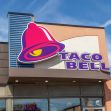Back in 1994, McDonald’s lost a products liability case after a 79-year-old woman spilled coffee in her lap and suffered second-degree burns. The case, which originally was set to cost the fast food giant $2.7 million, sparked a national debate about frivolous lawsuits and the need for tort reform. The controversy heated up again earlier this month when a Florida jury found the restaurant liable for serving a “dangerously hot” Chicken McNugget to four-year-old Olivia, who got third-degree burns on her upper thigh when one of the “overheated” chicken pieces fell onto her leg in the backseat of her mother’s car.
Olivia’s parents, Philana Holmes and Humberto Caraballo Estevez, sued corporate McDonald’s and Upchurch Foods, the owner of the Tamarac, Florida, franchise where the burn occurred, for “failing to adequately train its employees, failing to warn consumers about the “dangerous” temperature of the food, and cooking the food to a temperature much hotter than necessary..,” according to the South Florida Sun Sentinel.
The parents’ complaint alleged, “The Chicken McNuggets…were unreasonably and dangerously hot” and caused the skin and flesh around their daughter’s thighs to burn, leaving her “disfigured and scarred.”
The Fort Lauderdale jury verdict on May 11 found Upchurch liable for negligence and failure to warn customers about the risk of hot food. It did not find McDonald’s negligent but found both defendants liable for failing to provide instructions for safe food handling. The jury did not find that the McNuggets product was defective. Holmes v. McDonald's will have a second trial later this year to determine damages. Olivia’s parents are asking for $150,000 in damages.
McDonald’s issued a statement about the jury verdict, saying, “This was an unfortunate incident, but we respectfully disagree with the verdict…Our customers should continue to rely on McDonald’s to follow policies and procedures for serving Chicken McNuggets safely.” McDonald’s told the jury that the 200-degree cooking temperature was necessary to protect against salmonella, a dangerous infection that is caused by ingesting raw or undercooked meat. They also argued that the food was “meant to be eaten, not pressed between a seat belt and human flesh for more than two minutes” as was the case when Olivia was burned.
Her burns occurred in 2019 when Holmes ordered Happy Meals for Olivia and her brother at a drive-thru window. She testified that no one in the restaurant “warned her that the food might be unusually hot.” She picked up her food, passed it to her children in the back seat, and drove away. Shortly thereafter, her daughter, who the court learned suffered from autism, began to scream. Holmes pulled into a parking lot where she saw the burns that were inflicted when one nugget got stuck in her daughter’s car seat and burned her leg. Holmes took pictures of the burns on her iPhone. Both the photos and sound recordings of Olivia’s screams were played in court. Olivia did not testify.
The McDonald’s case recalls the 1994 coffee case, which followed McDonald’s burning of more than 700 people between 1982 and 1992. It even inspired a Seinfeld episode that left people asking the question, “Isn’t coffee supposed to be hot?” The question is now relevant again.
Forbes magazine reports that the McDonald’s coffee case “set an important legal precedent” that permitted the plaintiffs in the McNuggets case to prevail. It quoted Holmes’ attorney who explained that the earlier case created “safe food handling methods” for serving food at what he called an “unreasonably high temperature.” He also said that the young girl is “an adorable, innocent child who was severely burned through no fault of her own.”
Olivia’s suit was not the first attempt to hold the fast food restaurant civilly liable for burning customers. There have been multiple lawsuits. Another Florida man sued the chain for burns to his mouth and lips that he received after biting into a fried chicken sandwich. That case was dismissed when a judge ruled that the customer should have “tested the temperature of the sandwich” before he ate it. An appellate court reinstated the case and it was settled for an undisclosed amount. In addition, an Oregon woman sued McDonald’s for $1.56 million after her 14-year-old daughter was served water at “a dangerous temperature.” Her case settled as well.
Findings from the Center for Justice and Democracy case led the Texas Trial Lawyers Association to write an article that purported to provide the “facts of th(e) widely misreported and misunderstood case” that started with the 1994 coffee burn.
The article explained that the plaintiff actually received about $800,000 because the jury had found her 20 percent at fault when her coffee spilled after she failed to “hold the cup securely between her knees” when she removed the lid. The article also provides information to potential future coffee-burn plaintiffs: McDonald’s sells its coffee at between 180 and 190 degrees Fahrenheit. If spilled onto skin, third-degree burns will occur in two to seven seconds. These burns will not heal without skin grafting and other medical interventions.
The article also noted that the Shriners Burn Institute in Cincinnati had published warnings to the franchise food industry that its members were unnecessarily causing serious scald burns by serving beverages above 130 degrees Fahrenheit. They do not appear to be listening. It seems there is no guarantee of prevailing in a lawsuit against McDonald’s and its franchises that serve very hot food. Just be careful, especially when getting food from a drive-thru. It’s easier than getting burned and filing suit.






